Renewing your SSL certificate is essential for maintaining trust and security on your website. In just three simple steps, you can ensure your site remains protected and your visitors feel safe. Follow this 2024 tutorial to safeguard your online presence effortlessly!
How to Renew Your SSL Certificate in 3 Simple Steps
In today’s digital landscape, securing your website is not just a luxury—it’s a necessity. With cyber threats lurking around every corner, an SSL certificate serves as your digital shield, protecting sensitive information and instilling trust in your visitors. But what happens when that crucial layer of security is on the verge of expiration? Fear not! Renewing your SSL certificate doesn’t have to be a daunting task. In our comprehensive 2024 tutorial, we’ll guide you through the process in just three simple steps. By taking this proactive measure, you’re not only safeguarding your online presence but also enhancing the confidence of your users. Join us on this journey to ensure your website remains a safe haven, and let’s empower you to effortlessly renew your SSL certificate today!
Understanding the Importance of SSL Certificates for Your Online Security
In an era where online interactions dominate our lives, ensuring the security of your website is paramount. SSL certificates play a vital role in establishing a secure connection between your site and its visitors. When a user sees that little padlock icon in their browser, it signifies trust and safety, helping to foster confidence in your brand. This not only enhances user experience but also encourages engagement and conversion.
Moreover, SSL certificates are essential for protecting sensitive information, such as credit card numbers and personal data. By encrypting the data transmitted between the user and the server, SSL shields your website from cyber threats and data breaches. This added layer of security is particularly crucial for e-commerce sites and those that handle any form of sensitive transactions. Here are a few reasons why investing in an SSL certificate is indispensable:
- Trust and Credibility: Customers are more likely to engage with a business that takes their security seriously.
- Search Engine Ranking: Search engines favor secure websites, potentially boosting your site’s visibility.
- Data Integrity: SSL certificates ensure that the data sent and received remains unchanged and untampered.
- Compliance: Many regulatory standards require SSL for data protection, making it a necessity for legal compliance.
As you consider renewing your SSL certificate, remember that the process is straightforward and can greatly enhance your website’s security profile. Keeping your SSL up to date is not just a technical task; it’s a commitment to your visitors’ safety and trust in your brand. By prioritizing SSL renewal, you’re not only protecting data but also reinforcing your reputation as a responsible and secure online entity.
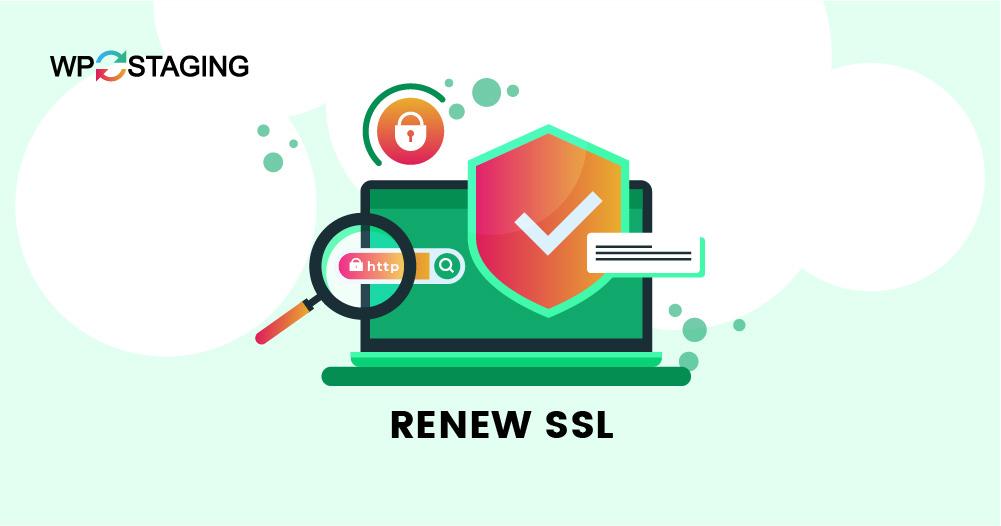
Recognizing When Its Time to Renew Your SSL Certificate
Maintaining the security of your website is paramount, and one of the key elements in achieving this is your SSL certificate. Recognizing when it’s time to renew your certificate can save you from potential downtime, data breaches, and loss of customer trust. Here are some signs that indicate it might be time to act:
- Expiration Date Approaching: Keep a close eye on the expiration date of your certificate. Most SSL certificates are valid for one year, and a reminder a few weeks prior can ensure you’re always protected.
- Increased Browser Warnings: If users are encountering warnings about your site being “not secure,” it’s a clear sign that your SSL needs renewing or possibly upgrading.
- Changes to Domain or Organization: If you’ve changed your domain name or any significant details about your organization, you may need to renew your SSL certificate to reflect these changes.
Additionally, it’s crucial to monitor the performance of your certificate. Some SSL providers offer a dashboard or monitoring tools that can send alerts regarding the status of your certificate. If you notice any discrepancies, it may indicate a need for renewal or troubleshooting. Staying proactive not only keeps your data secure but also reassures your visitors that you take their online safety seriously.
| Renewal Indicator | Recommended Action |
|---|---|
| Less than 30 Days Until Expiration | Renew Immediately |
| Browser Security Warnings | Check Certificate Status |
| Change of Domain Name | Update and Renew Certificate |
By understanding these crucial indicators, you can take the necessary steps to renew your SSL certificate on time, ensuring the integrity and trustworthiness of your website remain intact.
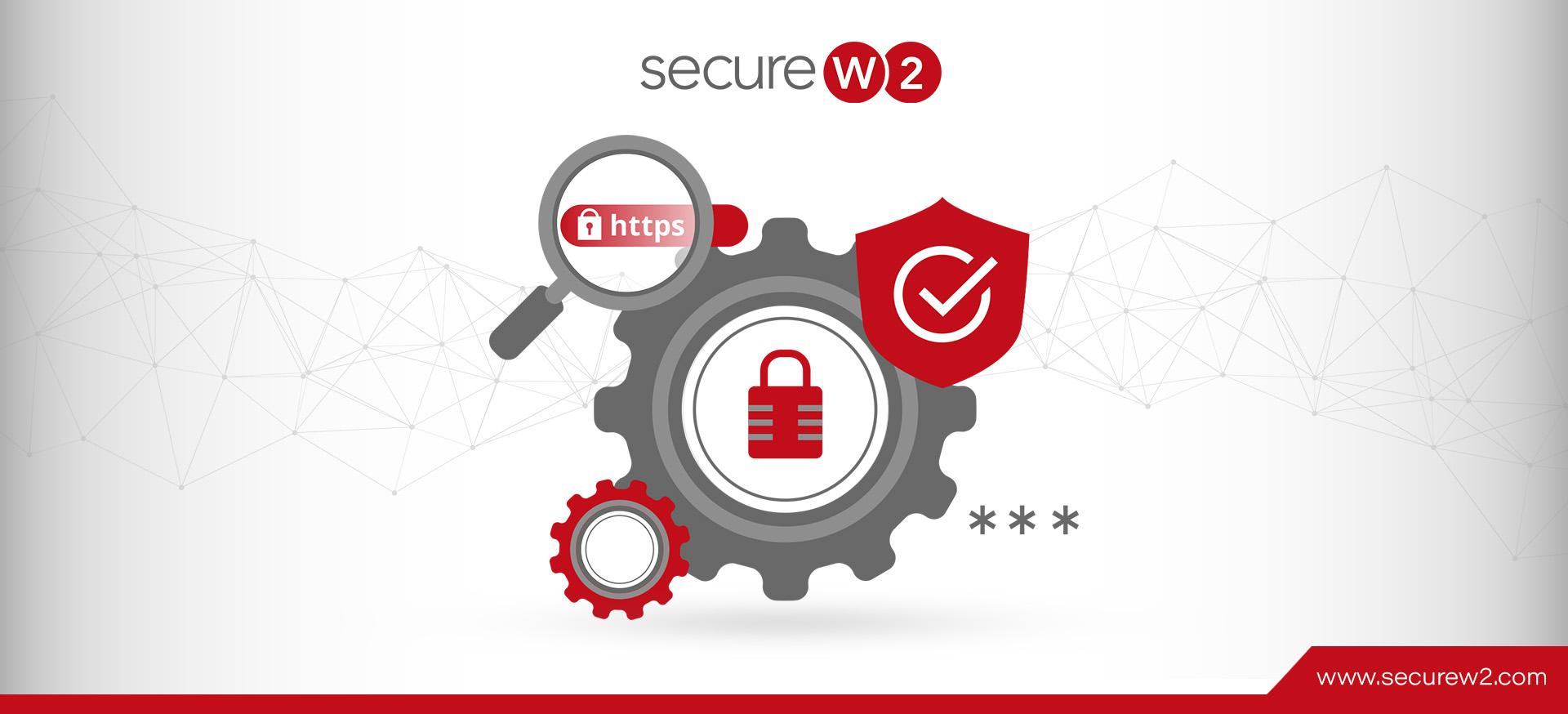
Preparing for a Seamless Renewal Process
As the expiration date of your SSL certificate approaches, it’s crucial to prepare in advance for a smooth renewal process. A proactive approach not only helps avoid costly downtimes but also strengthens your website’s security and credibility. Here are some essential steps to ensure a seamless experience:
- Review Expiration Dates: Keep track of your current SSL certificate’s expiration date. Setting reminders well in advance can help you avoid any last-minute rush.
- Gather Required Documentation: Ensure that all necessary documents related to your domain ownership and validation are ready for submission to your certificate authority.
- Choose the Right Certificate: Assess whether your current SSL certificate still meets your needs, or if an upgrade or change in type would provide better security features.
Additionally, it can be beneficial to test your website’s compatibility with various browsers and devices post-renewal. This will help in maintaining a flawless user experience. Consider implementing a backup plan in case of unforeseen issues during the renewal process. Here’s a quick reference table to help you stay organized:
| Task | Deadline | Status |
|---|---|---|
| Track SSL Expiration | 30 days before | Pending |
| Gather Documentation | Two weeks before | In Progress |
| Renew Certificate | One week before | Not Started |
By adhering to these steps and maintaining clear communication with your certificate authority, you pave the way for a hassle-free renewal process, ensuring your website remains a secure haven for your visitors.
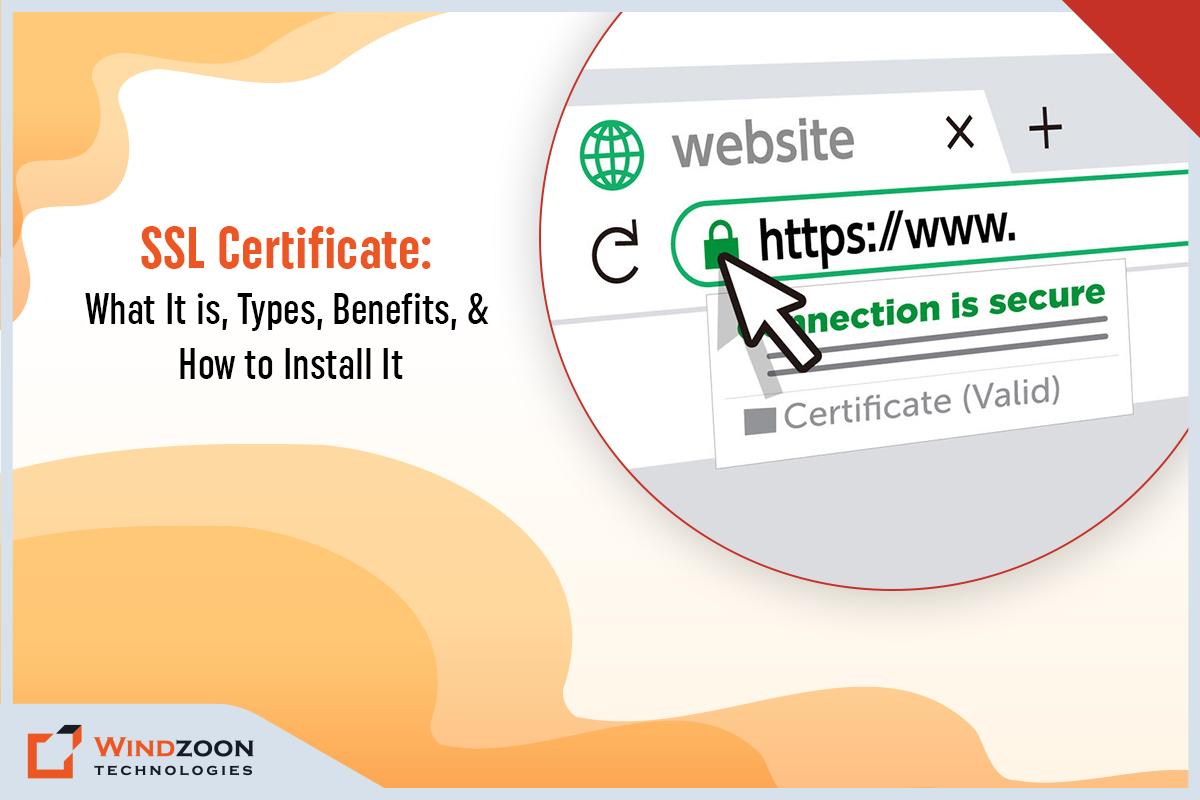
Choosing the Right SSL Certificate for Your Needs
When it comes to securing your website, choosing the right SSL certificate is crucial. The type of certificate you select can significantly impact both your site’s security and your users’ trust. With various options available, it’s essential to consider factors such as your business size, the nature of your website, and your budget.
- Single Domain SSL: Ideal for individual websites, this certificate secures one domain and is often the most cost-effective option.
- Wildcard SSL: Perfect for businesses with multiple subdomains under one main domain, this option provides flexibility and saves you money.
- Multi-Domain SSL: If you run several different domains, a multi-domain certificate can secure up to 100 domains under a single certificate.
- Extended Validation (EV) SSL: For organizations needing the highest level of trust, EV SSL not only encrypts your site but also displays your business name prominently in the address bar, enhancing credibility.
Understanding the differences among these certificates is vital to making an informed decision. Consider creating a comparison table to evaluate the features and benefits of each type. Here’s a simple breakdown:
| SSL Type | Best For | Trust Level | Price Range |
|---|---|---|---|
| Single Domain | Small Websites | Low | $$ |
| Wildcard | Multiple Subdomains | Medium | $$$ |
| Multi-Domain | Businesses with Multiple Domains | High | $$$$ |
| Extended Validation | Large Enterprises | Very High | $$$$$ |
By carefully evaluating your needs and understanding the available options, you can select the SSL certificate that not only protects your website but also instills confidence in your users. Make the choice that aligns with your goals, ensuring a secure and trustworthy online presence.
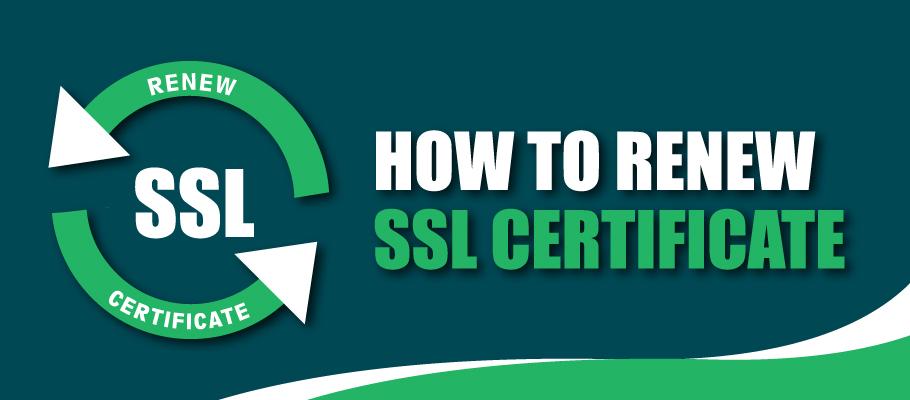
Gathering Necessary Documentation for Renewal
To ensure a smooth renewal process for your SSL certificate, it’s crucial to gather all necessary documentation ahead of time. This will not only save you from last-minute stress but will also help you maintain the security and trust of your website without interruption.
Start by compiling the following essential documents:
- Certificate Signing Request (CSR) – This file is necessary for verifying your domain identity and should be generated from your web server.
- Organization Validation (OV) – If applicable, ensure you have the documentation that verifies your organization’s legitimacy.
- Domain Control Validation (DCV) – Proof that you control the domain name, often done through email or a DNS record.
- Payment Information - Keep your payment details ready for the transaction process during renewal.
It’s also beneficial to have a copy of your previous SSL certificate on hand, as this can simplify the renewal process and ensure that you don’t miss any critical details. By preparing these documents in advance, you not only streamline your renewal process but also empower your website to remain a safe space for your users. With the right preparation, you can renew your SSL certificate confidently and efficiently, reinforcing the trust that your visitors place in your online presence.

Accessing Your SSL Certificate Management Dashboard
To begin the renewal process of your SSL certificate, the first step is to access your SSL certificate management dashboard. This dashboard is your hub for overseeing all SSL-related actions, ensuring that your website remains secure and trustworthy. Here’s how to get there:
- Login to Your Hosting Account: Start by logging into your hosting provider’s portal. Use your credentials to access your account dashboard.
- Navigate to Security Settings: Look for the ‘Security’ or ‘SSL/TLS’ section in the main menu. This is where you will find all your SSL certificate management tools.
- Select SSL Certificate Management: Click on the option that says ‘SSL Certificates’ or ‘Manage SSL’ to proceed to the management dashboard.
Once you’re in the management dashboard, you’ll be able to view all active SSL certificates and their expiration dates. This information is crucial for planning your renewal. Pay close attention to the certificate that needs renewal, as your website’s security depends on the validity of these certificates.
| Certificate Name | Expiration Date | Status |
|---|---|---|
| Example SSL Cert | 2024-06-15 | Active |
| Demo SSL Cert | 2024-03-20 | Expiring Soon |
By familiarizing yourself with the dashboard and its functionalities, you empower yourself to take charge of your website’s security. A smooth renewal process is just a few clicks away, ensuring that your visitors continue to enjoy a safe browsing experience.
Step-by-Step Guide to Initiating the Renewal
Renewing your SSL certificate can seem daunting, but with a clear roadmap, the process becomes a breeze. Here’s how to get started:
- Review Expiration Dates: Keep a close eye on your current SSL certificate’s expiration date. Most providers will send you reminders, but it’s wise to check manually.
- Choose the Right SSL Type: Determine if you need the same type of certificate or if your site’s needs have changed. For example, consider upgrading to a multi-domain or wildcard certificate if you’re expanding your online presence.
- Generate a Certificate Signing Request (CSR): This crucial step involves creating a CSR on your server. It contains your site’s information and is necessary for the new certificate.
Once you’ve completed the above steps, proceed with the following actions:
- Submit Your CSR: Provide the CSR to your SSL certificate provider. They will use it to generate your new certificate.
- Install Your New Certificate: After receiving your new SSL certificate, install it on your server. Ensure that you follow the installation instructions provided by your hosting service.
- Test Your Installation: Use online tools to verify that your new SSL certificate is installed correctly and is functioning as intended.
| Action | Details |
|---|---|
| Review Expiration | Check for reminders and verify dates regularly. |
| Choose SSL Type | Consider your current and future website needs. |
| Generate CSR | Necessary for obtaining a new SSL certificate. |
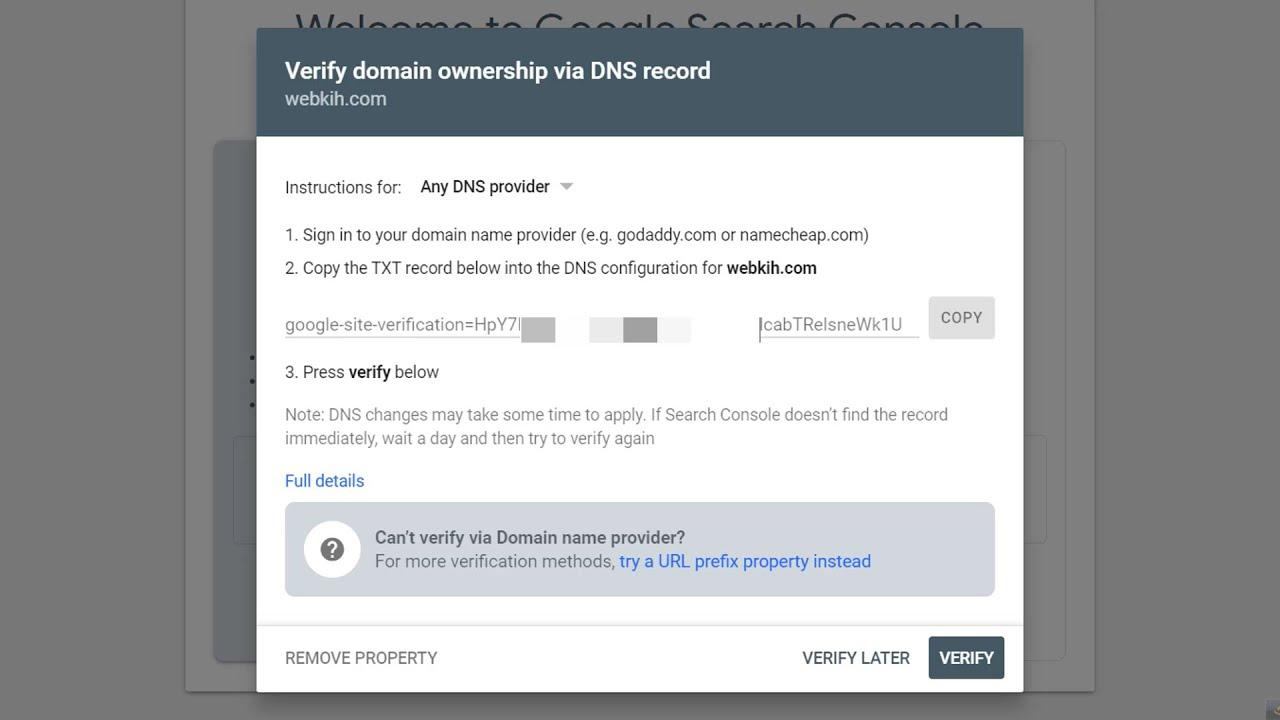
Verifying Domain Ownership for a Smooth Transition
As you prepare for the renewal of your SSL certificate, ensuring ownership of your domain is crucial for a seamless transition. This verification process not only safeguards your website but also builds trust with your visitors. Here are some essential steps to take:
- Check Your Domain Registration: Make sure your domain registration is up to date and that you have access to the email address associated with the registration.
- Utilize DNS Verification: One of the most straightforward methods is to add a specific TXT record to your DNS settings. This helps the Certificate Authority confirm your ownership.
- Email Verification: Look out for verification emails from your Certificate Authority. Respond promptly to avoid delays in your SSL renewal.
By taking these proactive steps, you’ll not only expedite the renewal process but also fortify your site against potential security threats. Below is a simple table summarizing the verification methods:
| Verification Method | Ease of Use | Time Required |
|---|---|---|
| DNS Verification | Moderate | 5-10 minutes |
| Email Verification | Easy | Immediate |
| File Upload Verification | Advanced | 15-30 minutes |
Every moment counts when managing your SSL certification; ensuring domain ownership verification not only protects your online presence but also enhances your credibility. Embrace this transition with confidence and watch as your site becomes a fortress of secure connections!

Installing Your Renewed SSL Certificate with Confidence
Once you’ve secured your renewed SSL certificate, the next step is to install it with confidence, ensuring your site remains secure and trustworthy. The process may seem daunting, but with a clear approach, you can navigate it smoothly. Here are some essential tips to help you get started:
- Backup Your Existing Certificate: Before you begin, it’s prudent to create a backup of your current SSL certificate and private key. This ensures that you have a recovery option should anything go awry during the installation.
- Understand Your Server Environment: Different server environments may require different installation procedures. Familiarize yourself with your hosting platform, whether it’s Apache, Nginx, or a managed service, to follow the correct steps for installation.
- Follow Installation Guidelines Carefully: Utilize the documentation provided by your certificate authority or hosting provider. Pay special attention to any specific commands or file paths; details matter in this process!
After you’ve installed the new certificate, it’s crucial to test it thoroughly. A quick way to verify that everything is working correctly is to use online SSL verification tools. These tools can provide you with a detailed report, ensuring that:
| Status | Expected Result | Action Required |
|---|---|---|
| Valid | Your certificate is properly installed and recognized. | No action needed! |
| Expired | Your certificate has expired. | Renew and reinstall immediately. |
| Misconfigured | There are issues with the installation. | Review the installation steps and troubleshoot. |
By taking these steps, you not only enhance the security of your website but also instill trust in your visitors. A properly installed SSL certificate reflects your commitment to safeguarding their data, allowing you to conduct your online business with confidence.
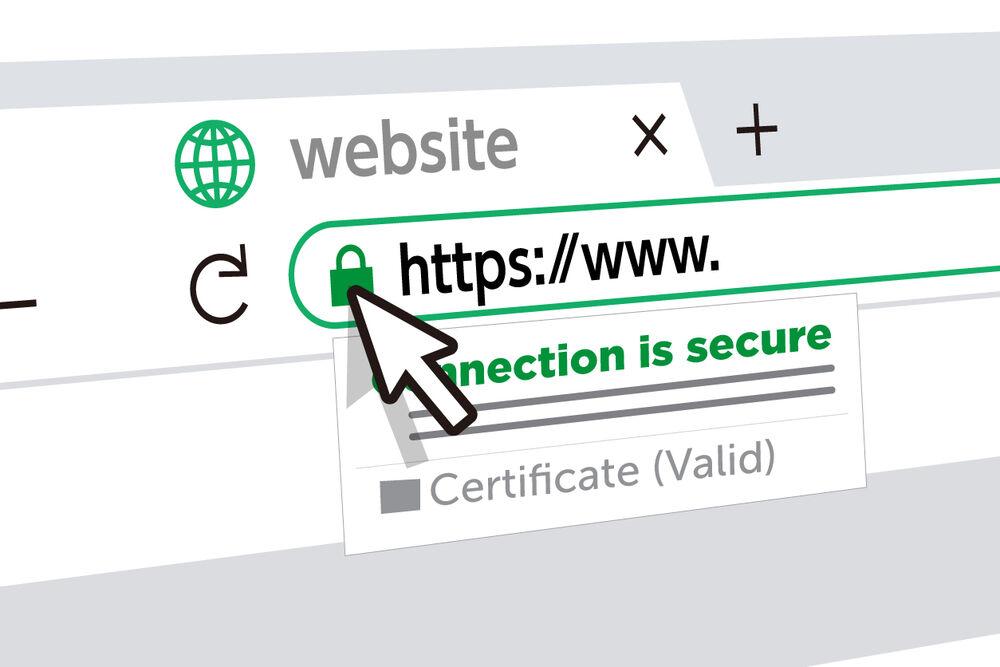
Testing Your New SSL Certificate for Functionality
Once you’ve successfully renewed your SSL certificate, it’s crucial to ensure that it’s functioning correctly. A well-configured SSL not only enhances security but also builds trust with your users. Here are some simple yet effective steps to test your new certificate:
- Check the Installation: Use online tools like SSL Shopper or SSL Labs. Just enter your domain name and these tools will perform a thorough check on the installation.
- Verify the Certificate Details: Click on the padlock icon in your browser’s address bar, then navigate to ‘Certificate’ or ‘Details’. Ensure that the information displayed aligns with your organization’s details, including the validity period.
- Test Mixed Content Issues: Use your browser’s developer tools (usually F12) to check for any mixed content warnings. Such warnings occur when your site serves both secure (HTTPS) and insecure (HTTP) resources.
- Monitor Browser Compatibility: Test your website on different browsers and devices to ensure that they all recognize your SSL certificate without issues.
If you encounter problems during testing, it’s essential to address them promptly. Here’s a quick reference table to help you identify potential issues:
| Issue | Possible Solution |
|---|---|
| Certificate Not Trusted | Check if the certificate chain is complete. |
| Mixed Content Warnings | Update all resources to load via HTTPS. |
| Expired Certificate | Renew the certificate and reinstall. |
Testing your new SSL certificate is a vital step in ensuring your website remains secure and trustworthy. By following these methods, you can confidently provide a safe browsing experience for your users, reinforcing their trust in your brand and services.
Common Issues and How to Overcome Them
Renewing your SSL certificate can sometimes feel daunting, particularly if you encounter common hurdles along the way. One frequent issue is the expiration notification that can be easily overlooked. To mitigate this, set up reminders a month before the certificate expiration date. This proactive approach allows ample time to renew without panic or last-minute rushes, ensuring your website remains secure.
Another challenge can arise during the verification process. If your domain is not properly verified, the renewal can be stalled. To overcome this, double-check that your WHOIS information is updated and that any domain verification emails are promptly addressed. Creating a checklist of required steps can streamline this process, reducing potential stress and confusion.
| Common SSL Renewal Issues | Solutions |
|---|---|
| Expiration Notification | Set reminders a month in advance |
| Domain Verification Failure | Ensure WHOIS info is updated |
| Incorrect Certificate Configuration | Double-check server settings |
| Browser Trust Issues | Renew with a trusted CA |
Lastly, users may face browser trust issues after renewal. This often occurs due to outdated certificates or a misconfigured server. To address this, ensure that you renew your certificate with a recognized Certificate Authority (CA) and correctly install the certificate on your web server. Keeping your server configuration documentation handy can also provide quick reference points to resolve any discrepancies that arise during the renewal process.
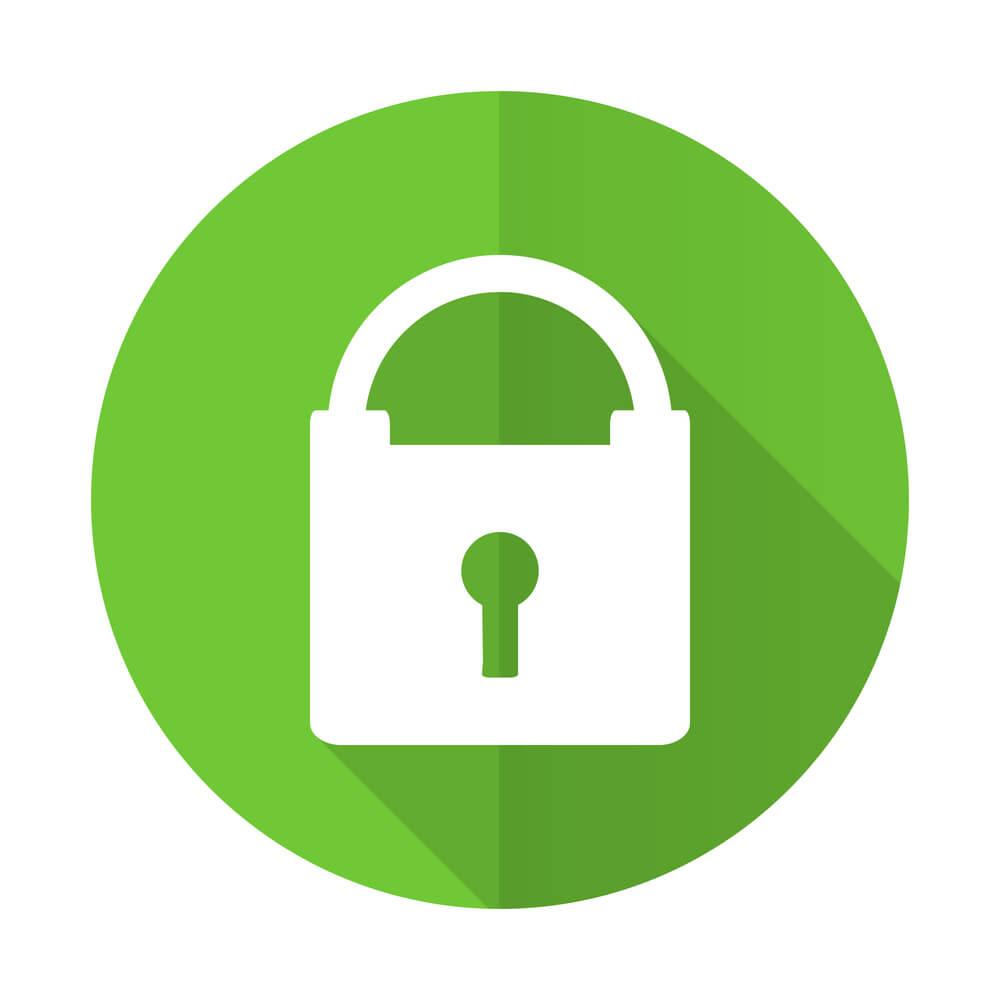
Best Practices for Maintaining SSL Certificate Security
To ensure the ongoing security of your SSL certificates, it’s crucial to adopt a proactive approach. Here are some essential practices:
- Regular Monitoring: Keep an eye on the expiration dates of your certificates. Set reminders a month in advance to initiate the renewal process.
- Stay Updated: Use the latest encryption standards and protocols. Regularly update your server software to prevent vulnerabilities.
- Limit Certificate Lifespan: Opt for shorter validity periods for SSL certificates. This ensures that you frequently renew and reassess your security measures.
- Use Certificate Transparency: Monitor public logs for your certificates to detect potential misissues or unauthorized changes.
Implementing these practices not only protects your site but also builds trust with your visitors. Furthermore, consider conducting regular security audits:
| Audit Type | Description | Frequency |
|---|---|---|
| Configuration Audit | Review SSL settings and ensure compliance with best practices. | Quarterly |
| Vulnerability Scan | Perform scans to identify potential threats and vulnerabilities. | Monthly |
| Backup Verification | Ensure that backups of your certificates and keys are secure and accessible. | Bi-Annually |
By following these guidelines, you can maintain a robust SSL certificate security posture that safeguards your data and enhances user confidence in your website.

Staying Updated on SSL Trends and Best Practices
In the fast-paced digital landscape, staying ahead of SSL trends and best practices is crucial for maintaining a secure online presence. As cyber threats evolve, so too must our strategies for protecting sensitive information. To ensure your SSL certificates are renewed effectively, consider the following essential practices:
- Regular Monitoring: Set reminders for your SSL certificate expiration dates. This proactive approach helps prevent any lapses in security.
- Understand Different Types: Familiarize yourself with various SSL certificate types—Domain Validated (DV), Organization Validated (OV), and Extended Validation (EV)—to choose the best fit for your needs.
- Utilize Automation: Leverage automated tools for SSL certificate renewal. Many services can help streamline this process, ensuring timely updates without manual intervention.
By integrating these best practices into your SSL management routine, you not only enhance your website’s security but also build trust with your users. Remember, a secure website is a foundation for a thriving online business. Keep your SSL knowledge current, and don’t hesitate to seek out resources or communities that share valuable insights. The commitment to staying informed can ultimately safeguard your digital assets and elevate your brand’s reputation.
| Type of SSL | Validation Level | Ideal For |
|---|---|---|
| DV SSL | Domain Validated | Small websites, blogs |
| OV SSL | Organization Validated | Business websites |
| EV SSL | Extended Validation | E-commerce, financial sites |

Celebrating Your Enhanced Online Security Post-Renewal
Renewing your SSL certificate is more than just a routine task; it’s a celebration of your commitment to maintaining a secure online environment. As you complete the renewal process, consider the following benefits that enhance your online presence and build trust with your users:
- Increased Trust: A renewed SSL certificate signals to your visitors that their data is protected, fostering confidence in your brand.
- Improved SEO: Search engines prioritize secure websites, helping you climb the rankings and attract more organic traffic.
- Enhanced Compliance: Keeping your SSL up to date ensures you adhere to industry standards and regulations, safeguarding your business from potential legal issues.
- Better User Experience: A secure connection reduces friction for users, allowing them to navigate your site with peace of mind.
To visualize the impact, consider this simple table that outlines the key advantages before and after your SSL renewal:
| Aspect | Before Renewal | After Renewal |
|---|---|---|
| Trust Level | Medium | High |
| SEO Ranking | Lower | Higher |
| User Confidence | Moderate | Strong |
As you reflect on the steps you’ve taken to renew your SSL certificate, embrace the newfound confidence that comes with heightened security. Your website is not just a digital space; it’s a sanctuary for your users. Celebrate this achievement, knowing you’re not only protecting their data but also enhancing your reputation in an ever-evolving online landscape.
Frequently Asked Questions (FAQ)
Q&A for ”How to Renew Your SSL Certificate in 3 Simple Steps (2024 Tutorial)”
Q1: Why is renewing my SSL certificate so important?
A: Renewing your SSL certificate is crucial because it ensures that your website remains secure and trustworthy. In an age where cyber threats are rampant, an active SSL certificate protects sensitive data like customer information and transaction details. By keeping your certificate up-to-date, you’re not only safeguarding your business but also building credibility with your users. Remember, security isn’t just a feature; it’s a promise to your visitors.
Q2: What are the three simple steps to renew my SSL certificate?
A: The process is straightforward and can be completed in just three steps:
- Check Your Current Certificate: Start by verifying the expiration date of your current SSL certificate. Most SSL providers send reminders as your renewal date approaches.
- Purchase a Renewal: Log in to your SSL provider’s dashboard and select the option to renew your SSL certificate. Follow the prompts to complete your purchase. Choosing a reputable provider can make this step smooth and hassle-free.
- Install the Renewed Certificate: Once you receive your new certificate, it’s time to install it on your server. Most hosting providers offer guidance or even automated tools to assist with this process, ensuring that your site is secure in no time.
Q3: How often should I renew my SSL certificate?
A: Typically, SSL certificates are valid for one to two years, depending on the type you choose. To maintain optimal security, it’s a good practice to set a calendar reminder for renewal at least one month before expiration. This proactive approach not only prevents downtime but also keeps your website’s security up-to-date.
Q4: What happens if I forget to renew my SSL certificate?
A: Forgetting to renew your SSL certificate can lead to serious consequences. Your website may display security warnings to visitors, which can diminish trust and drive potential customers away. In some cases, browsers may block access to your site altogether. Avoid this pitfall by staying vigilant and renewing your certificate on time—your business deserves nothing less!
Q5: Can I automate the renewal process?
A: Absolutely! Many SSL providers offer automated renewal options. By opting for this feature, you can set it and forget it, ensuring that your certificate is renewed seamlessly without your intervention. This allows you to focus on what matters most: growing your business and delighting your customers.
Q6: What if I encounter issues during the renewal process?
A: Should you run into difficulties while renewing your SSL certificate, don’t hesitate to reach out to your SSL provider’s support team. They are there to help you navigate any challenges and ensure that your website remains secure. Remember, every setback is an opportunity to learn and grow stronger.
Q7: How does renewing my SSL certificate benefit my SEO?
A: Search engines prioritize secure websites, which means that having an up-to-date SSL certificate can positively impact your SEO ranking. By renewing your certificate and maintaining a secure presence, you not only protect your users but also enhance your visibility online. In today’s digital landscape, security and searchability go hand in hand.
Q8: What’s the takeaway from this renewal process?
A: The renewal of your SSL certificate is not just a technical task; it’s a vital step in demonstrating your commitment to security and trustworthiness. By taking action today, you are investing in the future of your online presence. Embrace this opportunity to strengthen your website and reassure your users—they deserve a safe browsing experience. Let’s make 2024 the year you shine bright with security!
Future Outlook
As we wrap up this guide on renewing your SSL certificate in just three simple steps, remember that securing your website is not just a technical necessity—it’s a commitment to your users’ trust and safety. In a digital landscape where security breaches and data vulnerabilities are all too common, taking proactive measures to protect your online presence is crucial.
By following these straightforward steps, you not only enhance your website’s security but also reinforce your brand’s credibility and integrity. Embrace this opportunity to show your visitors that you prioritize their safety and experience.
The journey of maintaining a secure website is ongoing, and with each renewal, you affirm your dedication to excellence. So take action today—renew your SSL certificate, safeguard your online community, and pave the way for a brighter, more secure digital future. Together, let’s inspire confidence and foster a safe online environment for everyone!





